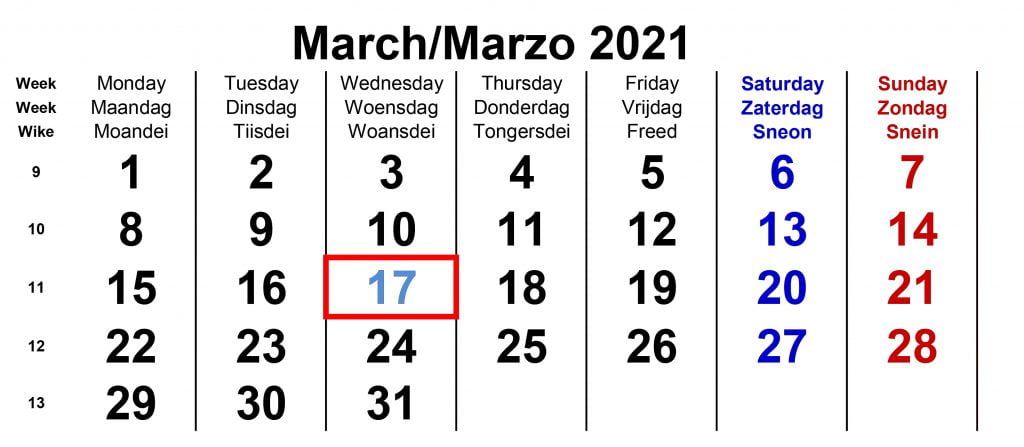For the ChristenUnie, the shovel must be put into the ground quickly to prevent public transport from getting stuck on several routes around 2030. Public transport is also being made more attractive for international travel. From the perspective of continuity, they support the new concession to the NS for the main rail network. The party is against further decentralization and privatization of the regional rail network, especially now that passenger forecasts in the aftermath of Corona make it less attractive for private parties to invest. ChristenUnie advocates for innovation on the railways. The introduction of the new ERTMS protection system and the increase of the overhead line voltage to 3 kilovolts will be accelerated to enable higher frequencies and shorter travel times and to be ready for an expanding European rail network. Automatic driving will be introduced on at least 5 routes before 2030.
The connections Groningen-Bremen-Hamburg, Eindhoven-Düsseldorf, Heerlen-Aachen and Roosendaal-Antwerp will be accelerated. The Intercity Amsterdam-Brussels is accelerated by skipping Breda and runs twice as often. There will also be an Intercity Antwerp-Breda-Eindhoven-Düsseldorf. Diesel locomotives will be replaced by hydrogen or electric locomotives by 2030 at the latest. Carriers will be obliged to publish figures on the number of travelers, travel time, punctuality, outages and customer satisfaction per connection as open data.
Public transport will be free throughout the Netherlands for accompanying children and cheaper subscriptions for school students. The HSL South surcharge is canceled. Season tickets are available in every region that are valid on the train as well as on the tram / bus / metro. The NS minimum price will be the same as that of other public transport and the double boarding fare will disappear so that short journeys become cheaper and a transfer between different carriers no longer drives up the price. When traveling by train, travelers only need to check in at the start of the journey and check out at the end of the journey, regardless of whether they pay with a bank card, OV chip card or via an app. The travel-unfriendly transfer terminals will disappear by 2022 at the latest.

No Lelystad Airport. According to the positions finally a line through the opening of hhe new Lelystad Airport. It opening an extra airport for holiday flights does not meet the need to fly less. Previous public and private investments are compensated. Opening an extra airport for holiday flights does not meet the need to fly less.
Mobility brings people together and is important for our economy. However, many forms of mobility are also at the expense of the quality of our living environment, our health, our climate and road safety. The ChristenUnie wants to with schools, companies, lease companies, provinces and municipalities make new agreements about more use of public transport and bicycles, about stimulating working from home and about avoiding rush hour, based on and building on the experiences of the Corona crisis. By 2030 they want to achieve a growth in bicycle use of at least 25% compared to 2020. The share of the bicycle in journeys of up to 7,5 km must grow from 35% to at least 45%. They are therefore investing in traffic light-free bicycle highways and eliminating the shortage of bicycle parking facilities at public transport hubs and in inner cities. Shared bicycles will be available at every station.
The ChristenUnie stimulates the use of zero-emission shared cars, so that less parking space is required and the sustainability of the vehicle fleet is accelerated. The government makes agreements with municipalities about lower parking standards and the realization of mobility hubs in the district for new housing projects. There will be a kilometer price for passenger cars with a low basic price per kilometer (to spare regions with limited public transport availability), supplemented by congestion charge and possibly a charge for polluting vehicles in the future. Privacy considerations, susceptibility to fraud and feasibility are taken into account during the implementation.
The reduction of the maximum speed to 100 kilometers per hour is one no-regretmeasure, which contributes to a large number of policy objectives related to road safety, traffic flow, climate, air quality and nitrogen. The maximum speed of 100 kilometers per hour will therefore also apply on motorways between 19:00 and 07:00. Road transport must also contribute to the national nitrogen targets. By implementing measures that are part of the climate agreement, aimed at zero-emission options, a significant reduction in nitrogen emissions will be achieved by 2030 as a contribution of the mobility sector to the nitrogen problem.
What a year we have had. It has been almost a year now that we have been on the road in this corona pandemic. And if I feel a little right, and if I look around a little bit, I find that many of you are getting exhausted. Tired. Tired of corona, tired of the measures, tired of the discussions about the measures. You worry about people around you. Elderly and young people who become lonely. Entrepreneurs who are afraid, who fear for their cause.
Gert Jan Segers
The ChristenUnie is a political party in which associations and persons are united. The local associations in which ChristenUnie members work together are called “local chapters” (until January 1, 2016 they were called electoral associations). ChristenUnie members are members of both the national party and the local chapter. Gert-Jan Segers, who was born in Lisse on July 9, 1969 and lives in Hoogland, will lead the upcoming elections. He has been active in the Lower House for 8 years.
Also read: PVDA wants a lower public transport rate and children partly travel for free

